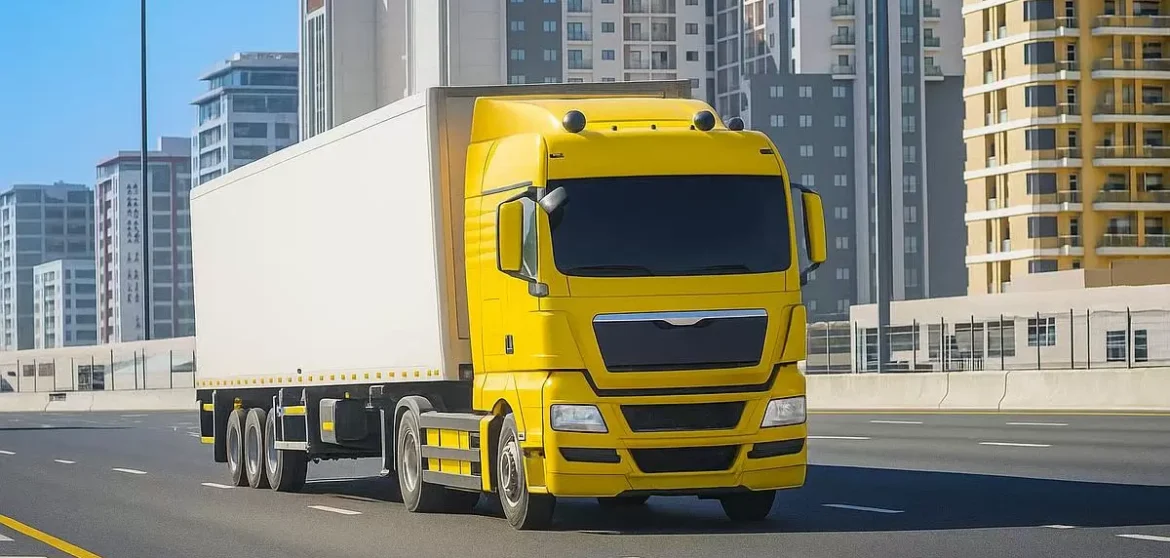Dubai RTA Launches Pilot Routes for Driverless Trucks
| Key Takeaways Dubai RTA has introduced five pilot routes for driverless heavy trucks, covering ports, airports, logistics hubs, and urban areas. Safety is central to the project, with both supervised and fully driverless operations being tested under a strict regulatory framework. The initiative supports Dubai’s Smart Self-Driving Transport Strategy 2030, aiming to make 25% of all trips autonomous. Partnerships with global innovators and digital platforms like Logisty are strengthening Dubai’s logistics ecosystem and paving the way for full-scale deployment. |
Dubai’s Roads and Transport Authority (RTA) has taken a significant step toward autonomous mobility by announcing five pilot routes for driverless heavy vehicles. This initiative forms part of the RTA’s Smart Self-Driving Transport Strategy, which aims to have 25% of Dubai’s transport trips carried out by autonomous systems by 2030.
The pilot programme brings together technology, logistics and sustainability. Trials will run on strategically important freight and commercial corridors and will operate under a regulatory framework designed and overseen by the RTA.
Let’s know further about it.
Dubai’s First Driverless Heavy Truck Routes
The Roads and Transport Authority (RTA) has officially introduced five pilot routes for driverless heavy trucks in Dubai, marking a major step toward the city’s long-term Smart Transport Vision 2030. These Dubai autonomous truck routes have been carefully chosen for their importance to the logistics and freight industry, ensuring that the trials reflect real transport demands rather than controlled lab conditions.
The corridors selected are:
- Jebel Ali Port – the region’s largest shipping hub, critical for import and export logistics.
- Al Maktoum International Airport – a key point for air freight and international cargo operations.
- Jebel Ali Rail Freight Terminal – an upcoming intermodal hub that will integrate road and rail connectivity.
- Dubai Investments Park – a major industrial and commercial zone with high freight movement.
- Ibn Battuta Mall – a strategic route that connects retail distribution with urban logistics.
Each of these routes has been chosen to test the adaptability of autonomous trucks in different environments, from high-volume port and airport operations to urban delivery points.
The RTA pilot routes will feature two types of operations. In some cases, trucks will run under human supervision, where safety drivers remain on board to monitor performance and intervene if required. In other scenarios, trucks will operate in fully driverless mode, supported by remote monitoring systems that track the vehicle’s movements and safety compliance in real time.

Safety-First Pilot Operations
The pilot routes will be closely monitored during testing. RTA states that some trial runs will operate with a safety driver on board, while other runs will be designated for driverless operation and monitored remotely. This staged approach is part of the formal pilot phase described by the authority.
RTA has emphasised that the trials will collect data and be reviewed against the regulatory standards set out in the framework. The intent is to validate technology performance and safety before expanding operations, consistent with the phased approach described by the authority.
Why the Initiative Matters for Dubai
Dubai’s commercial and land logistics transport sector currently includes a fleet of about 61,290 heavy vehicles (3.5 to 65 tonnes). The regulatory work and pilots are part of the Dubai Commercial and Logistics Land Transport Strategy 2030, which sets targets such as doubling the sector’s direct contribution to the economy to AED 16.8 billion, increasing technology adoption, improving operational efficiency, and cutting emissions. These figures and strategic aims are part of the official RTA materials.
To support digital logistics alongside autonomous trials, RTA has launched a logistics platform called Logisty in partnership with TruKKer. RTA describes Logisty as a platform for commercial transport services, fleet management, on-demand booking and tracking, which complements the pilot programme for autonomous heavy vehicles.
How Driverless Trucks Work in Dubai’s Environment
The driverless heavy trucks being tested by Dubai’s RTA rely on a combination of technologies such as LiDAR, radar, GPS, and AI-based navigation systems to operate safely on mapped routes. These tools allow the vehicles to detect lanes, identify obstacles, and adapt to traffic conditions in both desert and urban environments.
During trials, the trucks are monitored through RTA’s digital systems, ensuring real-time oversight and compliance with UAE safety standards. This integration of AI logistics in Dubai highlights how the emirate is adapting autonomous truck technology in the UAE to its specific transport needs.
Digital Backbone – Logisty Platform
To support these trials, RTA introduced Logisty, a logistics platform developed in partnership with TruKKer. Logisty functions as an on-demand freight marketplace that connects businesses with cargo fleet providers while offering real-time tracking and performance analytics.
By improving transparency and fleet optimization, the Logisty Dubai logistics platform strengthens the efficiency of freight operations and complements the wider adoption of digital freight in the UAE, making logistics more reliable and data-driven.
Integration with Dubai’s Smart Self-Driving Transport Strategy
Dubai’s driverless truck initiative is part of the wider Dubai self-driving strategy 2030, which aims to make a quarter of all trips in the city autonomous by the end of the decade. The plan is being carried out in phases.
- Phase one focused on setting up policies, regulations, and safety standards.
- Phase two involves testing pilot routes and gathering data from real-world conditions, such as those announced for heavy trucks.
- In the future, phase three will expand the system into full-scale deployment across the emirate.
This step builds on earlier autonomous taxi trials already tested in Dubai, showing how the city is moving steadily from small-scale pilots to larger transport solutions.
Benefits of Driverless Trucks
The introduction of driverless trucks in Dubai brings several practical benefits for both businesses and the wider economy.
- First, autonomous trucks can operate around the clock without fatigue, increasing efficiency in freight delivery.
- They also use consistent driving patterns, which helps lower fuel use and supports sustainability.
- From a cost perspective, fewer labor requirements and less downtime mean reduced expenses for logistics companies.
- Finally, safety is another major advantage, as automation reduces the risk of accidents caused by human error.
Together, these autonomous logistics UAE benefits highlight how driverless technology can improve operations while supporting Dubai’s long-term smart mobility goals.
Final Words
Dubai’s launch of pilot routes for driverless heavy trucks marks an important step in shaping the future of freight transport. RTA is ensuring that innovation moves forward safely and responsibly. These trials are not only about testing new trucks but about building a smarter logistics system that supports sustainability, reduces costs, and strengthens Dubai’s position as a global trade hub.
Global partnerships also play a big role in this journey. Collaborations with international autonomous mobility companies, along with local initiatives like the Logisty platform, show how Dubai is combining global expertise with homegrown innovation. With strong government backing and a clear 2030 strategy, the emirate is positioning itself as a leader in autonomous logistics worldwide.

